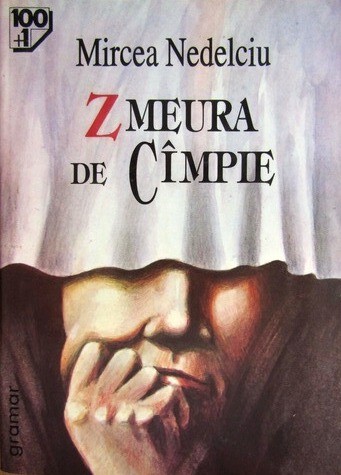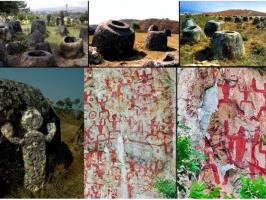Raspberry Plain by Mircea Nedelciu
original title: Zmeura de cîmpie


Mircea Nedelciu is considered to be one of the most important representatives of the eighties and postmodernism in Romanian literature. The eighties prose remains the standard of the resurrection of literary discourse, he imposing himself and astonishing himself by the force with which he declines his freedom to get out of the ordinary, out of the ordinary of a turbulent age. The textual engineering, to which the narrator appeals, since the beginning of the novel "Raspberry", published in 1984, visibly marks the discursive organization in four parts and 24 chapters numbered with the letters of the alphabet, from A (the word "Arac") to Z (the word "Zaţ").
The title, a complex nominal construction, allows the decoding of some meanings by the surprising association between the name of a plant in the mountainous area and a form of relief unusual for its existence, the plain. It is thus, in anticipation, the symbol of an alienation: man - separated from his family, betrayed by memory and even by history - seems a stranger in his own world. Through the title, Mircea Nedelciu created an inimitable, disconcerting formula, which states a "redoubling" and "doubling" of the text, leading to the realm of narrative, the way the text is constituted and its world, but the reader is aware of this only at the end of the reading, when he deciphers its connotative meaning and discovers its meanings.
The theme of the novel is the relationship between memory and truth, the impossibility of recovering the authentic past. Conceived as a "novel against memory", "Plain Raspberry" proposes a disturbing journey into the characters' past, without revealing any certainty about their origin, favoring ambiguity, decentralization, minimizing the author's supremacy, blurring the boundaries between various forms of narrative discourse. The prose writer builds his novel using the biographies of young orphans: Radu A. Grinţu, Zare Popescu and Gelu Popescu, called Meşteru. The novel includes the routes of the three young people (between 1973-1977), as well as their moments of intersection, most often purely coincidental (as everywhere in the author's prose, and here there is a network of coincidences). etymology; another, of genealogy; the third, cinematography. We all know each other, but I don't know each other ...
Supported by these coincidences and bizarre, the action of the novel ends up branching into three colors, followed predictably by the author. The only more exciting excerpts are those in letters sent by Zare Popescu to his former history teacher. Here, the theories of a self-taught person in etymology are applied to a linguistic and historical reality in continuous transformation. Objects and states, generations, epochs change, but the names of people and things, carefully analyzed, can give an idea of the old configuration. It is strange, however, that this young man so passionate about the past, about history, does not have the slightest curiosity about his parents, about his own past. He is not interested in the subject. Instead, the other Popescu and Radu A. Grinţu discuss only this: how can they find and reunite their family? How can I track my parents?
Of all the coincidences that could confirm the identity of Zare Popescu, Gelu Popescu and R.A. Grinţu, as well as the connection between them, the concordance between the memories of Grinţu and Zare is missing, it destroying the whole edifice. Therefore, memory is not recommended as the guiding thread in this process of self-knowledge and fails to be the axis around which to shape a personality. What we are witnessing is an unfinished investigation.
It is no coincidence that the last term of the dictionary invented by Zare is the term "zaţ", beyond which the idea that the act of creating and receiving a work is ephemeral shines through. Through the basic meaning of the word "zaţ" the reader is invited to discover what remains of such an attempt to interrogate the literature. In addition to the status of orphan, the three characters have in common the attempt to reconstruct their own past, for which - we are told from the first pages of the novel - "the only authentic document" is "vague memories [...]" . That is why the modalities of this biographical reconstruction are different. The "plain raspberry" rises on a foundation, in fact, tragic, of relentless lucidity.
Contrary to the "deciphered" relationships sometimes criticized (confused by the novel's deliberately tangled threads), the three characters are not relatives. Zare Popescu - who "refuses to acknowledge his parents and generally does not accept the idea that he could have such a thing" - decides that he wants Gelu Popescu as his brother, although he he supposes - and does not shy away from saying it, shaking the net of illusions - that "maybe he doesn't even call me Popescu".
Far from being a "Novel against memory", "Plain Raspberry" is a substantial novel of memory, one of the most disturbing in the entire post-war Romanian literature, in which memory has often taken refuge. From the fact that the epic matter is not subject to chronology, but is ordered according to a principle of the list (from A to Z), to the fact that the narrative advances "by leaps and bounds on the edge of the real hot spots on the storyline", many means compete to increase the reins of reading.
Extrapolating, we can conclude that "Raspberry Plain" is the book-manifesto through which Nedelciu breaks with the tradition of the novel from the '70s and proposes a mutation, in the sense of adopting a lucid look at the past.



























